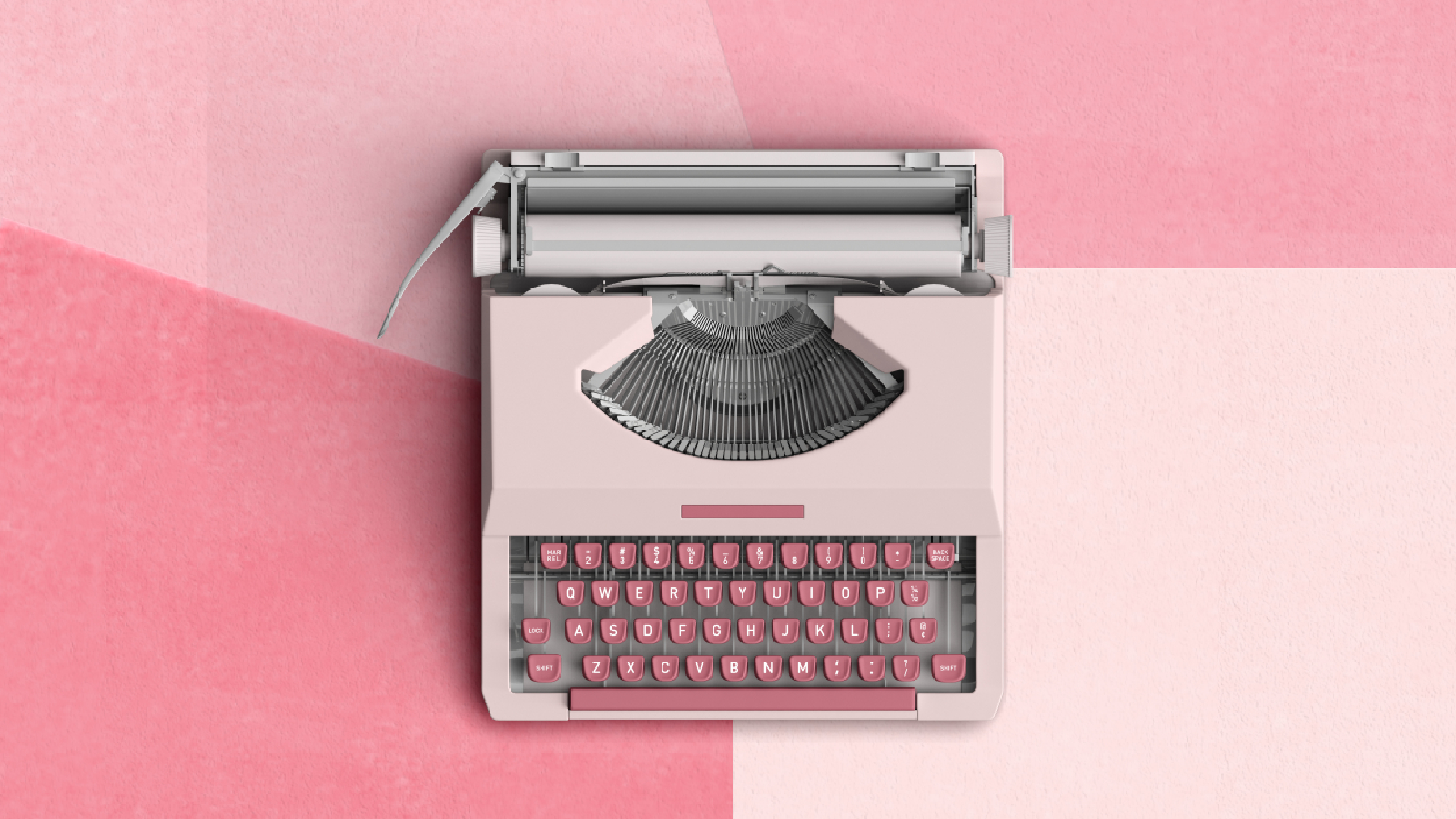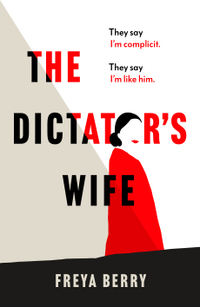Beginners' tips on how to write a book, from a debut author
Author Freya Berry offers her tips on how to write a book, with 9 essential things every new writer needs to know


Freya Berry
Debut author Freya Berry shares her beginners' tips on how to write a book, even if you don't know where to start. From finding the motivation to character development, these tips for those attempting to write a book for the first time will help you push through those hard moments.
In her late twenties, Freya left a job in journalism to pursue a career in fiction writing. Her debut novel, The Dictator's Wife, has attracted critical praise and made its way onto lists of the best books for 2022. Her feminist book tells the story of Marija, the surviving wife of toppled dictator Constantin. It's set in the fictional Eastern European country of Yanussi and explores how tyrants use the women by their side to soften their public image.
Although she's shaping up to be one of the best authors of 2022 thanks to her strong debut, Freya says novel writing hasn't always come easily. Here, she shares her essential tips tips on how to write a book—even if you have no previous experience. Over to Freya...
A debut author's tips on how to write a book for beginners
What are the best beginners' tips for writing a book? I've spent the last five years finding out, usually the hard way. While conducting research in Romania for my debut novel, The Dictator’s Wife, I was teargassed. Later, I had to rewrite my novel entirely, changing it from the third to the first person. I can honestly say, the latter was worse.
I was 26 when I left my job in journalism to write a novel. Not that I told my colleagues of my dream. It felt embarrassingly fantastical—akin to saying I wanted to be an astronaut or an MMA fighter. Looking back, with The Dictator’s Wife finally on the shelves, it might have been more straightforward to become one of those. At least I wouldn’t have developed a deadline habit for breakfast burritos.
"First you need an idea. One that tugs at you; one that you need to write... if only to find out what happens"
So how do you start writing a novel? Well, first you need an idea. One that tugs at you; one that you need to write... if only to find out what happens. I didn’t have an idea when I quit, but I’d just finished reporting on the US election, where I’d observed the sphinx-like silence of Melania Trump. And this was when my idea was born. Who are the women on the arms of the world’s strongmen? What are their inner worlds and desires? As Oprah might put it, was Melania silent or silenced? I had to find out.
Coming up with an idea is like building a den: playful, haphazard, fun. But writing that idea into something comprehensive is like building a church. It requires planning, engineering, and years of work. Above all, it requires faith. For that reason, no one can really tell you how to write a book, because scrabbling about in your mind day after day is the most personal kind of labor. Only you can do it. Yet still, here are some tips for writing a book that may help smooth the way—breakfast burritos not included.
Sign up for the woman&home newsletter
Sign up to our free daily email for the latest royal and entertainment news, interesting opinion, expert advice on styling and beauty trends, and no-nonsense guides to the health and wellness questions you want answered.
1. Just do it
Yes, Nike was talking about sports, but the same applies to writing. It’s so easy to get excited about an idea and then get discouraged after a few pages, because the words on the page look nothing like what we had in our heads. What you have in your head is an impossible dream—writing is the slow acceptance you will never attain it. Sad but true.
2. First drafts are terrible
Always. Accept it and move on. To the second draft. And the third. And so on, ad nauseum. Even some of the best fiction books will have started out with pages in the bin. I would reveal how many drafts I wrote in five years, but honestly, I’ve lost count. Maybe 30?
3. Find time (it’s really hard)
I wrote an appalling novel while working full-time. It's difficult to have writing a novel as a side-hustle or as a hobby. You don’t need to quit your job to write, but you do need time alone. I also set word counts in the manner of the frog-in-the-water paradigm. I’ll start small, say 200 words, and build up to a few thousand.
4. Believe in yourself, but be humble
No one completes a book if they don’t believe they can. Believing that book is the next King Lear is a different matter. I’ve generally found that a writer’s confidence in their work runs in inverse correlation to their ability.
5. Writing a book is hard work—accept it
Many people think writing a book is ‘fun’. These people have probably never started a book, and they definitely haven’t finished one. Writing is sometimes enthralling, generally frustrating, and occasionally sublime, but it is not ‘fun’. Yanking words out of your head is exhausting, and drains resources you didn’t even know you had. Just finish it.

6. Listen, and don’t listen, to feedback
Every writer needs an editor. I inflicted my early drafts on friends and family. I asked them to be honest (but expected them not to be). Here’s what I found most useful: when people make suggestions on things to fix, it pays to listen not so much to the fix itself, but the fact they feel one is needed. You’re the writer, so no one can know what feels true to the story but you. But they’re the reader, and their instinct on what’s not working is generally worthwhile.
7. Get to know your characters
There are lots of articles and books about how to build characters. But online templates can’t help you breathe life into them. Spend time with them—go for walks, ruminate on their lives and choices, make them real. Writing is never so easy as when characters come alive. Because at that point the book starts writing itself.
8. Speak the truth
Anyone can come up with a story. But great fiction books (and non-fiction books) come from telling people something real. Not just what they don’t know—but what they do know. The motives and shame and secrets which lie buried, deep in their most private selves. Writers have to reach into the reader’s heart and yank at its strings. That means clawing at our own thoughts until they bleed. The best example I was given of human truth was the ‘Tinder poo story’. Really. Look it up.
9. Have fun with it
I know, I don’t think writing is fun. But it does make me feel like being a fish in water. It’s that feeling alone that has kept me going, along with most other writers I know. Keep finding that joy; keep taking in new experiences and ideas. When your mind is relaxed and receptive, that’s when the magic happens. And it is magic. Good luck!
The Dictator's Wife by Freya Berry
The Dictator's Wife focuses on a young London lawyer who becomes embroiled in the case of toppled dictator Constantin—and his surviving wife, Marija. To research the book, Freya observed the behavior of the world’s dictators and strongmen and their wives, including Melania Trump while reporting on the 2016 election. The Dictator's Wife has real depth and is a unique mystery book with a gut-wrenching conclusion you won't see coming.
Lauren is the former Deputy Digital Editor at woman&home and became a journalist mainly because she enjoys being nosy. With a background in features journalism, Lauren worked on the woman&home brand for four years before going freelance. Before woman&home Lauren worked across a variety of women's lifestyle titles, including GoodTo, Woman's Own, and Woman magazine.
- Freya BerryContributor
